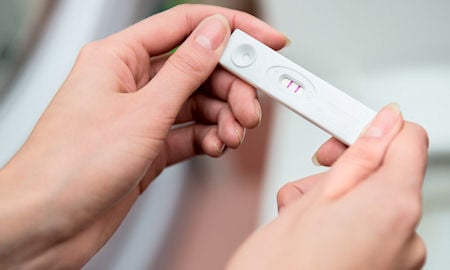
The Difference Between IUI and IVF
TRANSCRIPT
With more couples across the U.S. turning to the use of fertility treatments and assisted reproductive technologies, one of the most common questions patients ask their fertility specialist is: what is the difference between IUI and IVF?
The answer isn’t always clear and depends on several unique factors. It is important to know Intrauterine insemination (IUI) or In vitro fertilization (IVF) can both be successful at helping grow your family.
Intrauterine Insemination (IUI)
Many couples choose to begin with intrauterine insemination (IUI) because of its significantly lower cost when compared to IVF. IUI typically runs anywhere from a few hundred dollars up to $2,000 per cycle, based on the fertility clinic, the type of medication used, the blood work, and follow-up that’s required.
However, IUI is considerably less effective than IVF, and couples may require multiple cycles before being able to conceive, bringing the overall expenditure closer to half the cost of IVF. In the U.S., the average cost of IVF is around $11,000 to $12,000, but again, IVF has considerably higher success rates than IUI.
What is IUI?
IUI is a simple office procedure that places sperm, collected from the partner and processed in the laboratory, into the uterine cavity. The "washing" of sperm in the lab removes seminal fluid (which can cause severe cramping) and concentrates the sperm. Placing the sperm higher into the uterine cavity bypasses the cervix and makes the passage to the fallopian tubes much shorter. The goal is to increase the chance that more sperm will encounter the egg.
IUI may be performed during a woman's natural ovulation which can be timed with over the counter ovulation predictor kits (OPK) or in conjunction with fertility medication received by the woman to assist in ovulation function
Who Can Benefit from IUI?
IUI can help couples when:
- A woman has ovulation problems and has not been able to conceive using ovulation-inducing fertility medication
- Fertility medication is used to increase the number of eggs a woman normally ovulates
- There are minor abnormalities in the sperm analysis (such as concentration, motility, and morphology or shapes of the sperm)
- Male partner has difficulty ejaculating
- The male partner has frozen sperm obtained prior to surgery or treatment for diseases like testicular cancer
- Donor’s sperm is being used to get pregnant
IUI is often considered as the first line of treatment for unexplained infertility, mild endometriosis, or mild male factor infertility.
In Vitro Fertilization (IVF)
What is IVF?
- A form of ART (assisted reproductive technology) in which a man’s sperm and a woman’s eggs are combined outside of the body in a laboratory dish
- A woman receives medications to stimulate her ovaries to develop multiple follicles with eggs
- A minor procedure under sedation uses transvaginal ultrasound to aspirate the follicles and obtain the eggs followed by same day sperm insemination
- Monitoring embryo growth to determine the optimal day & embryo(s) for transfer
Who Might Benefit from IVF?
In vitro fertilization is typically recommended for couples who have been trying unsuccessfully to get pregnant for one year and who display one or more fertility problems, such as:
- Blocked fallopian tubes from scarring or tubal ligation
- Lack of ovulation
- Extremely low male sperm count or low motility
- Advanced endometriosis
- Male partner with a history of a vasectomy
- Diminished egg supply and poor egg vitality
- Egg donation and/or IVF surrogacy
IVF is generally recommended for couples that have failed to conceive after three unsuccessful IUI cycles. According to the Society for Assisted Reproductive Technology the IVF success rate in the U.S. for women of all ages is around 30 percent; however, when women under the age of 35 are taken into account, the IVF success rate are much greater.
Your Next Steps
Consulting a board certified infertility specialist is an important first step in evaluating your unique fertility situation and determining the best course of action; Researching a clinic's success rates before committing to treatment can also help you in your decision making process; And, contacting your insurance provide to determine your fertility coverage.

